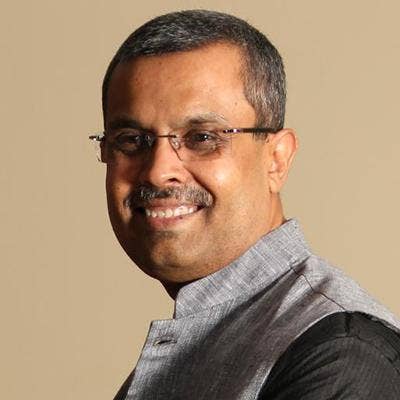Mphasis CEO: Full Steam Ahead With Upcoming Ownership Change

Eyes On Growth
As he awaits a change in the controlling ownership of his company, the leader of Bangalore, India-based solution provider Mphasis is looking to grow, especially in the United States, which accounts for about three-fourths of revenue, according to CEO Ganesh Ayyar.
Last month, Hewlett Packard Enterprise agreed to sell its roughly 60 percent stake in Mphasis to private equity giant Blackstone Group for about $825 million. Blackstone, the world's largest private equity fund, brings with it a portfolio of about 90 companies that Ayyar says can also become customers.
Mphasis, which employed about 23,500 as of the end of 2015 and has alliances with close to 40 vendors, will continue to have HPE as a customer. As part of the sale, HPE plans to renew a services contract with Mphasis for five years.
The deal will also help accelerate Mphasis' push toward helping clients use digital technology for better customer experience management, another Mphasis official said.
In a recent interview with CRN, Ayyar addressed Mphasis' plans after the deal closes, which he expects will happen within three months. Here's an edited version of the interview.

Mphasis has devoted a lot of resources toward improving the customer experience. What value does Mphasis add to the offerings of its vendor partners?
The important aspect of customer interactions and the customer experience is a combination of technology and process. Just focusing on technology alone or focusing on process alone in the modern world won't work. … The value that we bring is our expertise around business process outsourcing and process automation, and … the technology element.
What we do is that we leverage our industry specialization … and [a] combination of ops and tech to bring value to … our customers.

Why is that addition of process and operations important to solution providers such as yours, especially as it would apply to the U.S. market?
Just opening your existing process with technology will not give the benefit to the end customer who's going to come through, let's say, a digital channel. It similarly won't optimize the benefit to the so-called service provider or customer, in this case. This combination is very, very important, because what you have to do is re-look at your process in view of new interaction models, and not just look at technology alone.

The company's stock has advanced only about 5.5 percent over five years. Where are the best opportunities for growth in the next two to five years?
One of the issues which was [impacting] our overall company growth was the decline in business that we were experiencing from HP as a customer. In the last three years, that business has declined at the rate of about 31 percent per annum. Now, if you look at this Blackstone transaction, there are clearly two bright spots … and one of them happens to be HPE as a customer. HPE has committed to a minimum revenue over the next five years of $990 million. Secondly, we have been pointed [to] as a preferred partner by HPE in the IT services space for them, which means that we do have the safety net of $990 million over the next five years and the opportunity to grow it further. When that happens, it will help our overall company growth rate.
The second bright spot is that Blackstone has portfolio companies [that make up a] $1 billion addressable market per annum. Whatever percentage [of that] we are able to achieve would add to our growth, and what this would do [is offer] the opportunity to be at the top end of [growth rates] in the industry.

The Blackstone deal hasn't closed yet. Are there any indications as to potential changes in structure at your company? Or changes to areas of focus once they take over?
I think one clear focus that we would have is to put [together] a team which is focused on growing our business with Blackstone portfolio companies. Other than that, I don't see [a] major structural shakeup. … We always fine-tune our structure in line with our strategy. Our strategy has remained very stable … and I don't see earth-shaking changes in our structure.